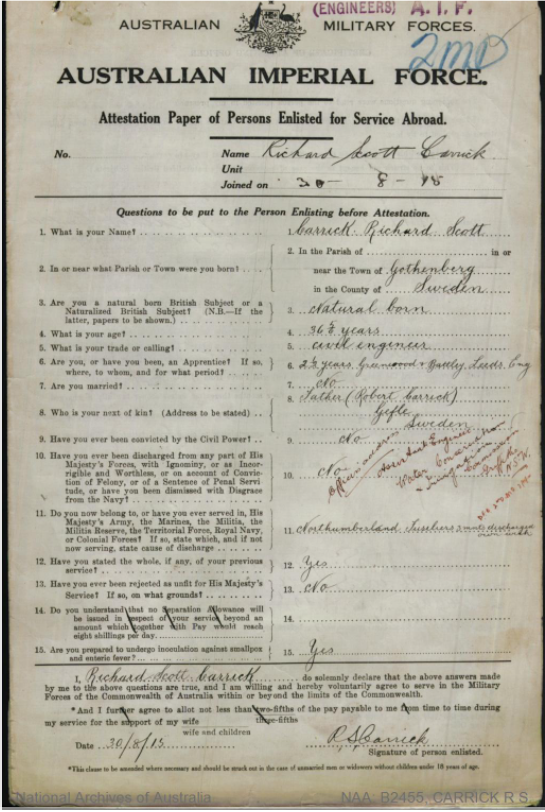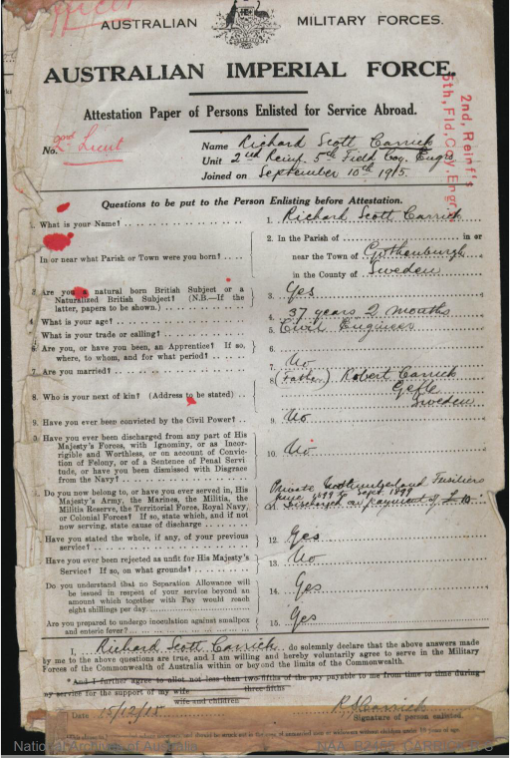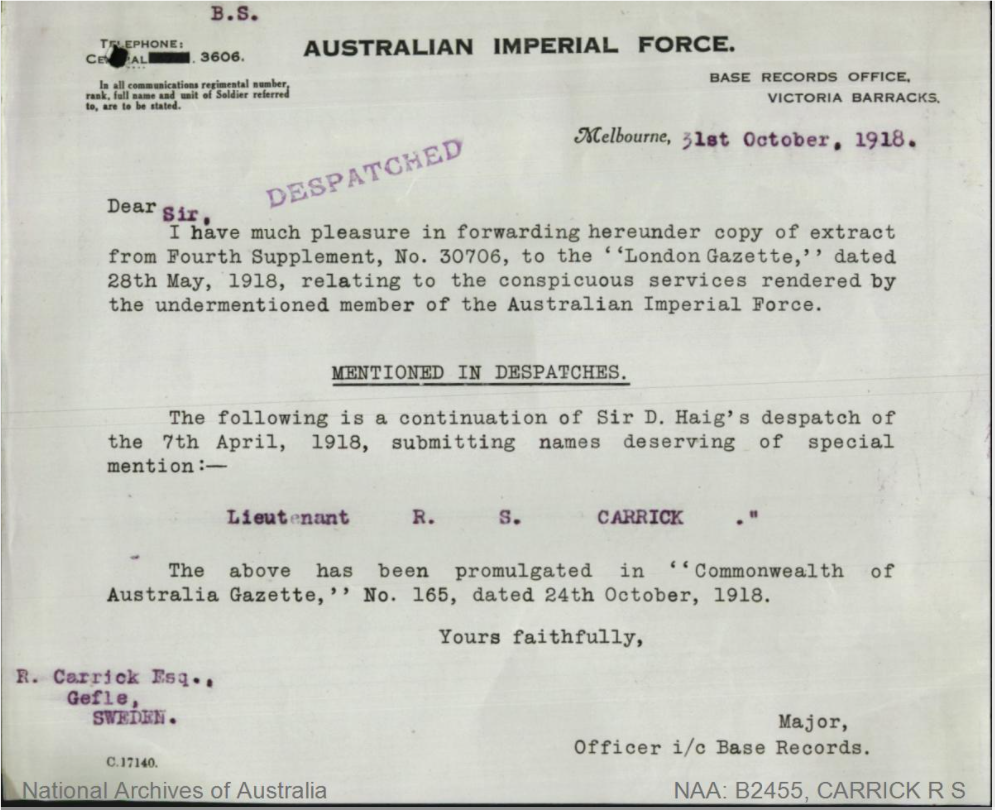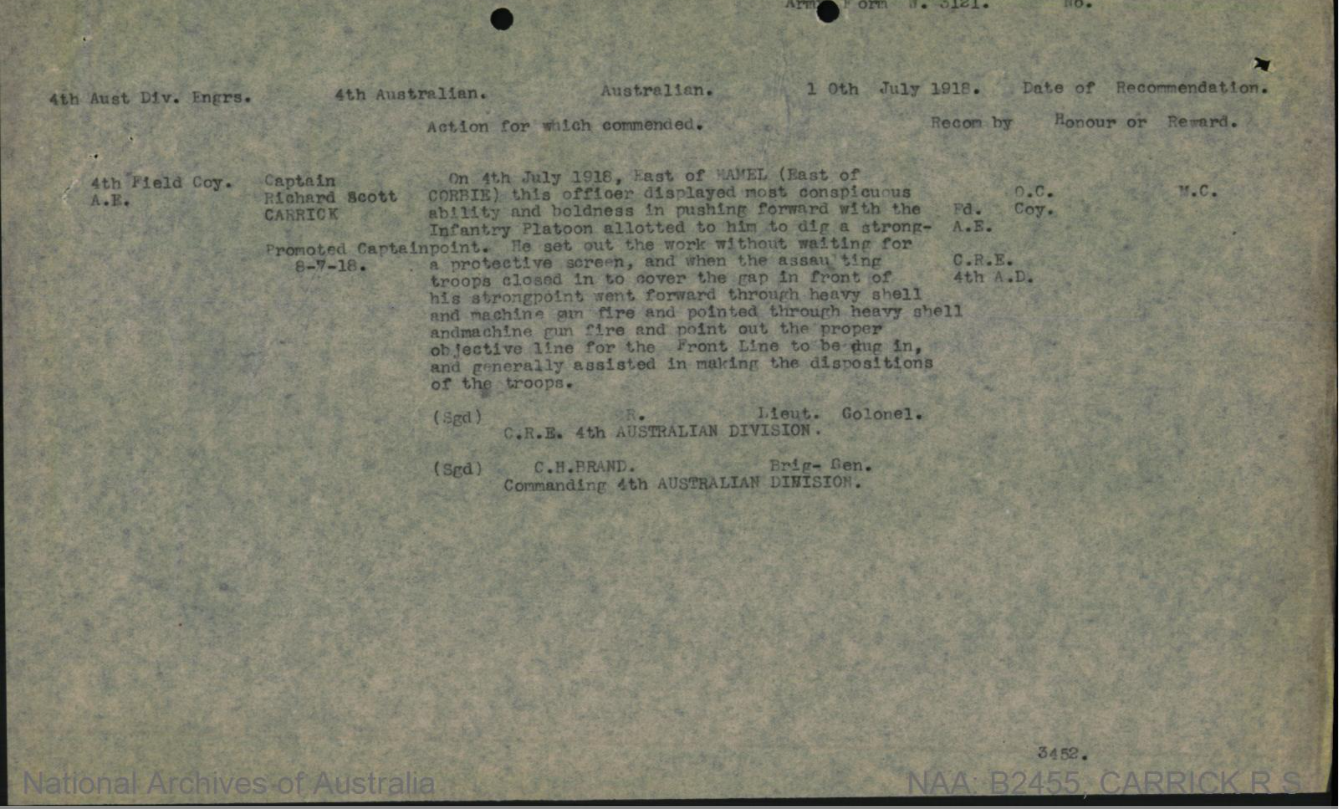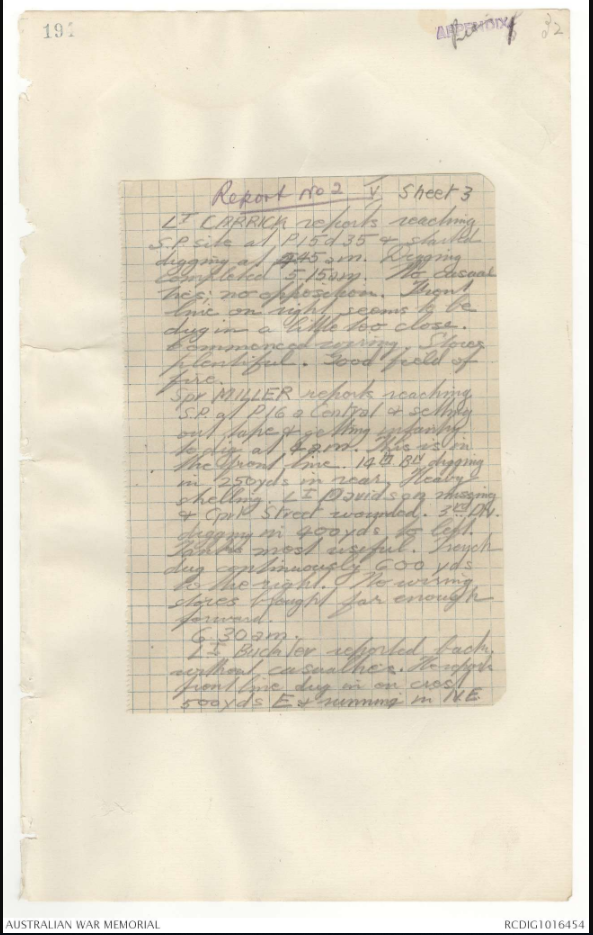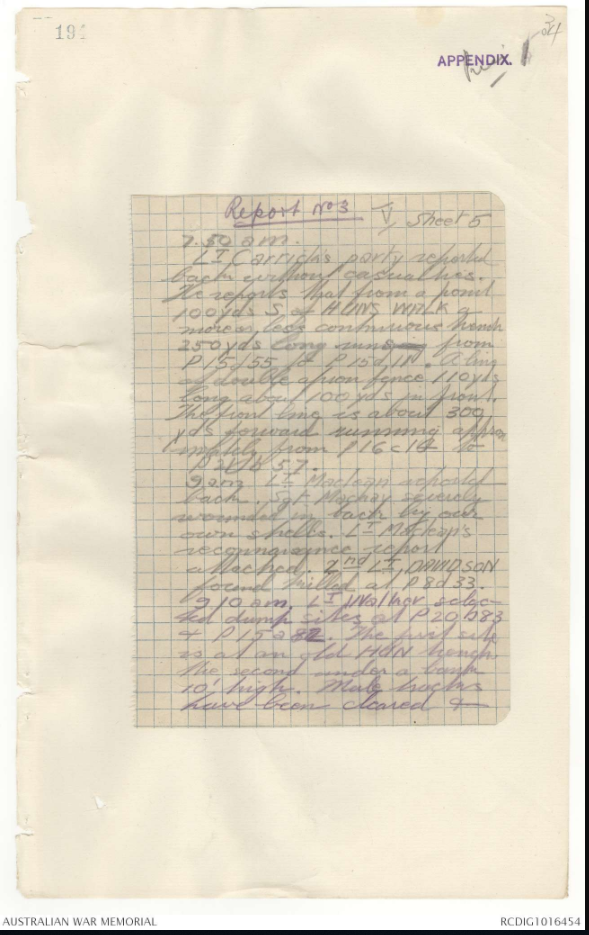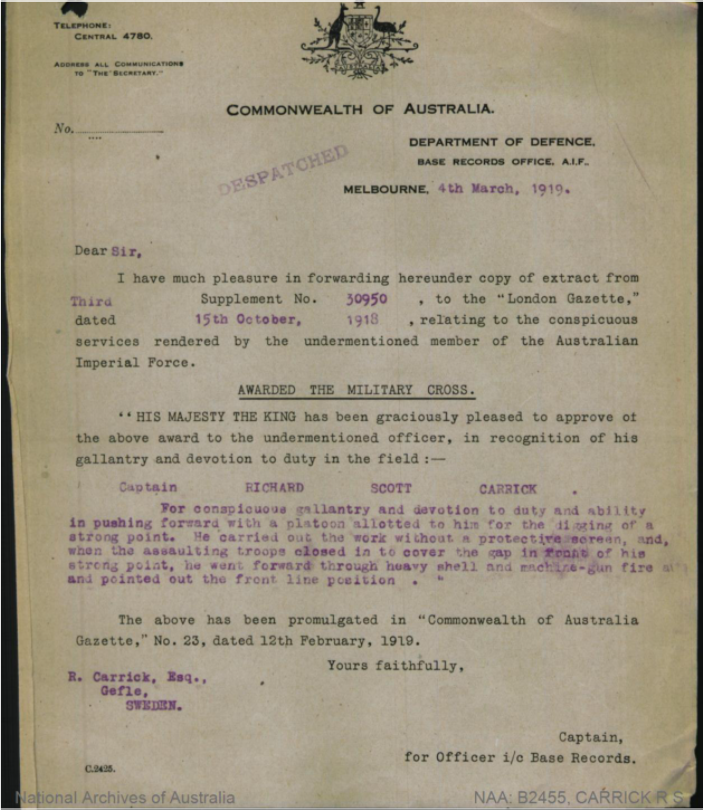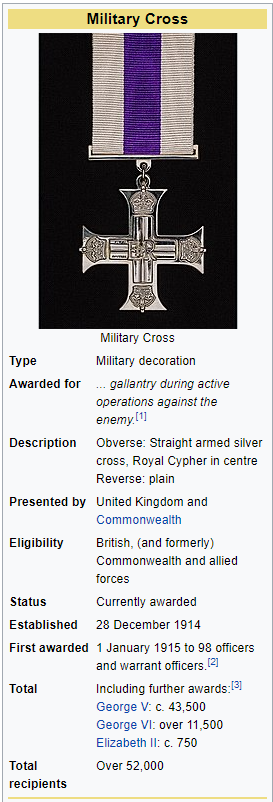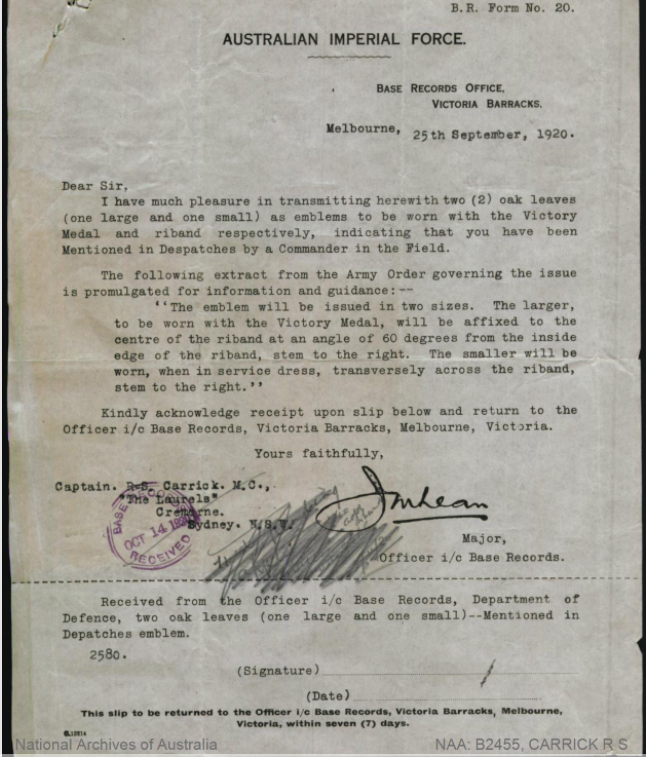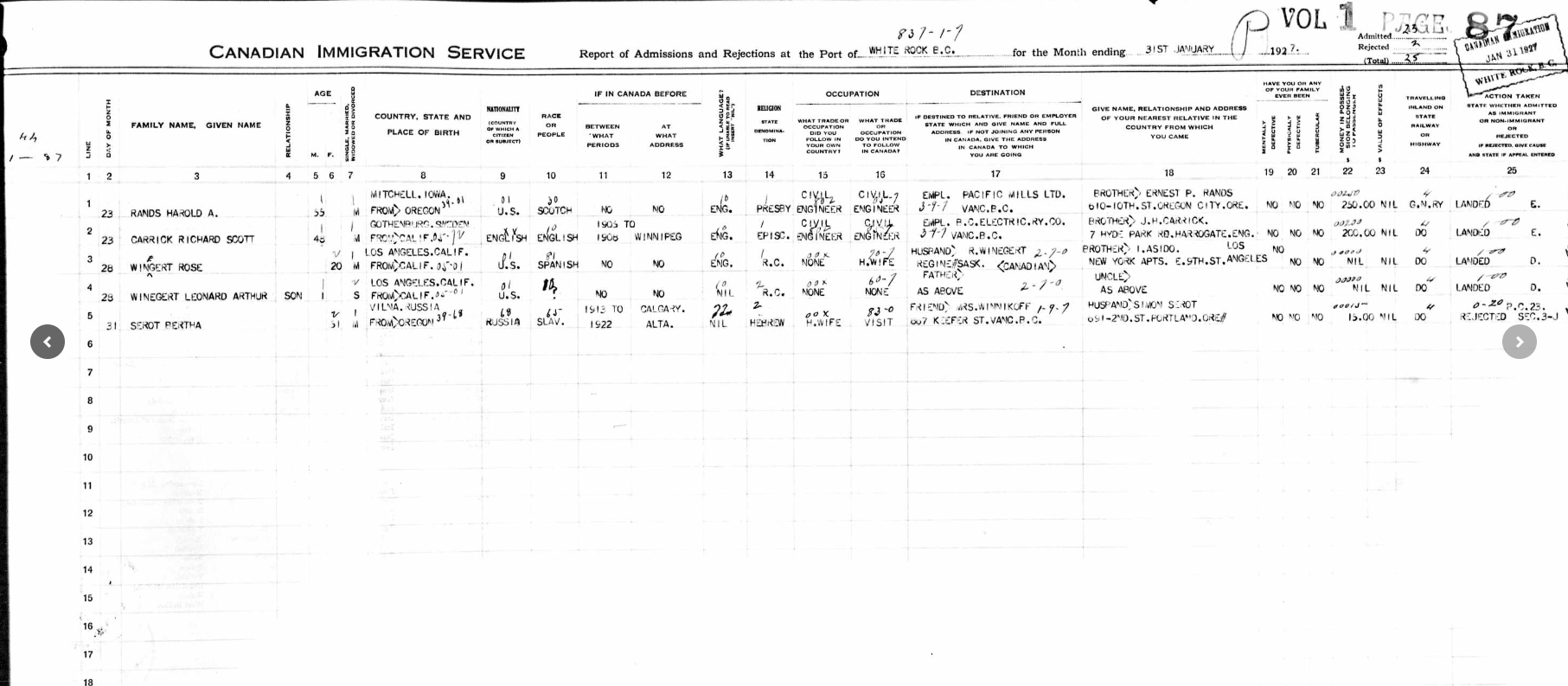In my research for Swedish born soldiers who fell at the Western Front in The Great War, I sometimes come across individuals with some remarkable history, and in this case with Swedish connections. In this case though, he survived.
Richard Scott Carrick was born in Gothenburg, Sweden October 11th 1878. His UK born father Robert Carrick was working in Sweden at that time, and he was later on settled in Gävle, Sweden.
Right now I don’t have any information about when he emigrated to Australia, but he joined the Australian Imperial Forces in 1915, at an age around 37, and it is also stated in his application that he has served in the UK for Nothhumberland Fusiliers in 3 months, and then was discharged by his own will. He probably went to Australia after that. Later on he went to Europe, via Alexandria in Egypt, to participate in the The Great War and ended up in the war theatre in France in June 1916 as a 2/lt and the bacame Lt in the field in July 1916.
In September 22nd 1916 he became injured from a Gun Shot Wound and was evacuated. He reported himself back for duty in March 24th 1917, and then served with 4th Field Engineers. He was temporarliy promoted to Captain in field May 2nd 1917, but later in June there is a note about that he has relinguished that temporary promotion to Captain.But in July 18th 1917 he becomes promoted to Captain again.
But before this period the diary states an remarkable note. In April 7th 1918 he is specially mentioned in Gen. Haig Despatch probably because of his acting in the field and in the fightings.
His father must have been mighty proud of his son at this point.
Later in 1917 Richard is fighting with his unit in the area of Corbie, France, during the battle of Hamel, and in July 4th 1918, he manage to do some remarkable actions in the field and for that he is later on awarded the Military Cross. In the picture below you can see the withdrawal from the diary at that point, and also specified in a specific letter.
The interesting part of this specific battle, Battle of Le Hamel, was that the AIF was cooperating with the forces of the American Expeditionary Forces, AEF, and the battle was fought with combined arms in a trench warfare situation.
In August 9th 1918 Robert Scott Carrick is awarded the Military Cross for his actions of 4th of July 1918. And he is also awarded two oak leaves to put on his Military Cross to show that he was mentioned in the Despatch of Gen. Haig April 7th 1918.
He survives the war and Richard is later on granted a leave to Sweden to be able to visit his relatives and he stays in Sweden for about six months, between 2nd of February to 2nd of August 1919. He goes back to Australia not later than 3rd of August 1919.
The archives then states that he emigrates to United States from Australia in 1925, and then emigrates to Canada in 1927, but he yet again applies for American Citizenship in 1931, and are later settled down in California, and he dies at an age of 93, and he is buried at the Hanford Cemetery, Kings County, California.
Imagine what an experience, to travel around the world in these times, performing in The Great War, be mentioned by Gen. Haig in a specific Despatch, and the awarded The Military Cross.
To read about this is one of the reasons that I am so interested in to follow up individuals with connection to Sweden that has participated in The Great War, even if this person didnt fell at the Western Front.

